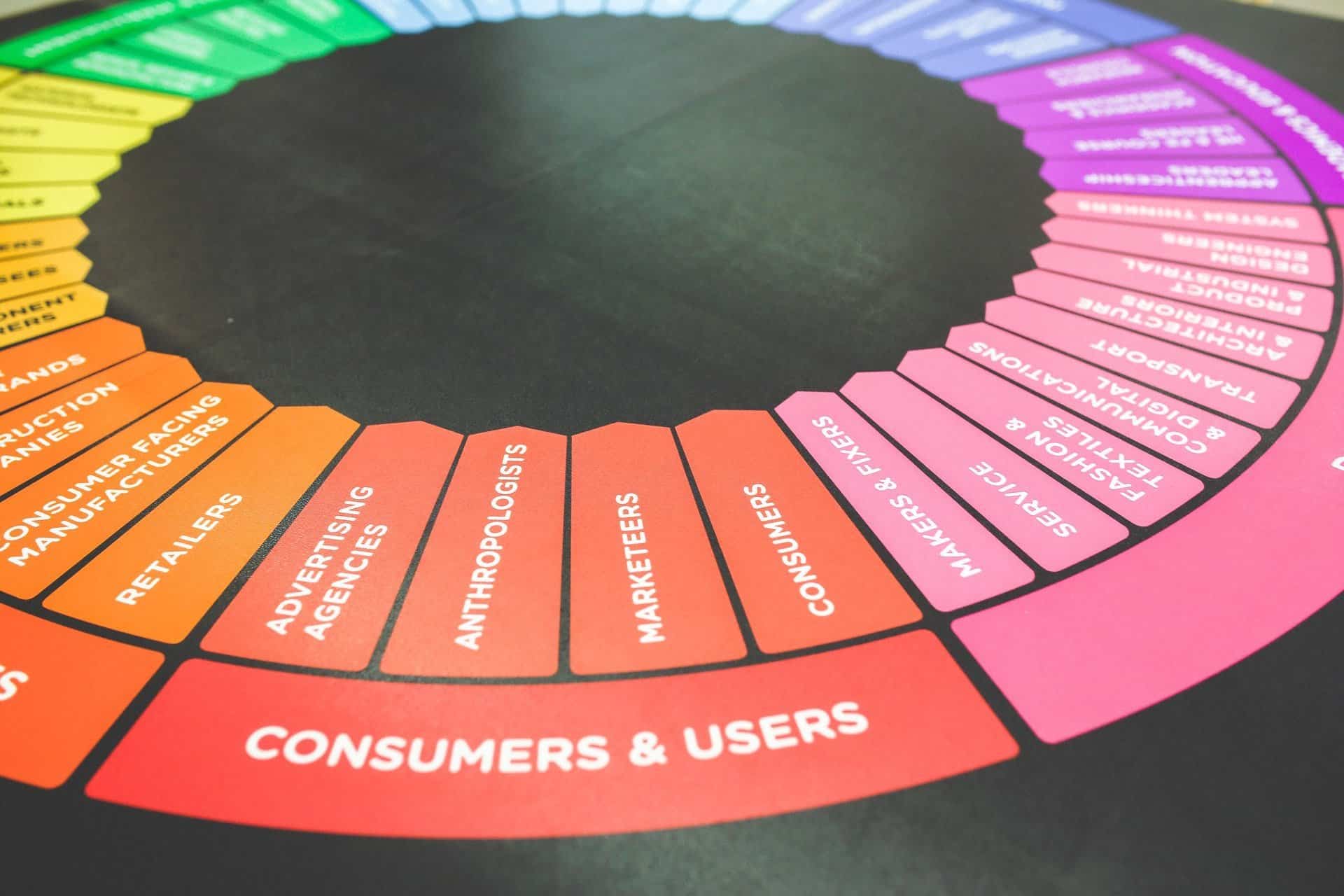In today’s fast-paced digital world, online marketing is a necessity for lawyers and law firms. To effectively market your law firm online there are several factors to consider, having a powerful website, well-maintained social media profiles, high-quality content, effective advertising etc. Therefore, it is important to have a digital strategy in place to pull everything together to attract relevant and curious search engine users to your firm.
A strong digital marketing strategy is one of the biggest levers you can pull to grow your law firm and get more clients. Through this guide, we are providing the top strategies to enhance your law firm’s visibility using digital marketing:
Table of Contents
Personal Branding
The term `Marketing Yourself’ is confusing for many. Creating a personal brand is a concept which people do not understand properly. But, if you are looking to start a business, do not forget to market yourself. How can you do that?
- First of all, always have a digital presence. A digital footprint is the easiest to follow. Create an account on a professional networking site and use it optimally.
- Identify those who have similar interests with you and stay connected with them. Networking goes a long way, in staying relevant and visible.
- Visibility is extremely important. Joining a professional network is good, but if you regularly keep sharing your insights and showcasing your work, people would remember who you are and what you do.
- Try to have a website of your own. It could be a blog or a webpage dedicated to the work you do. Routinely post your insights there and popularize the same.
- Have a video presence on the internet. You can share your insights about the latest legal developments.
- Make sure to organize webinars and discussions. This would make you a doyen in the field of legal knowledge.
Creating value in yourself and showing people what you bring to the table is extremely important. If you create a name for yourself in the legal space, clients will automatically want to associate with your organization.
Remember an organization, ultimately is the product of the people who comprise it.
Social Media Marketing
Social Media Marketing is the cheapest and most cost-effective way in which you can reach the masses. It does not require a lot of money or logistical support, as traditional advertising methods such as newspapers or print media.
Social media these days is a one-stop-shop for the young generation. Post a tweet and the world sees it and you incur zero cost in the same. Let us see what are the different social media networks and how can you utilize them:
- LinkedIn: Starting or running a business? LinkedIn is not just a good to have but a must-have for you. It is the best place for you to build a professional network and find potential clients.
- Facebook: While Facebook is not used typically for professional networking, you can post regarding your opinions and insights here and people in your network can get to know about what you are doing. This way, you can capitalize on your existing network.
- Instagram: Instagram can be great for putting up visual ads regarding your firm or business. Promotional pictures, pictures pertaining to events you are conducting etc. can be posted here to gain leverage.
- Twitter: This can be a great place to popularize yourself in an interdisciplinary manner. Post about recent topics of interest. Show your domain knowledge. Follow the bigwigs of the legal industry. Twitter can be a brilliant place to popularize yourself and your brand.
If done right, social media can be the best platform to attract potential clients. It promotes the brand and visibility of the founder as well as the business at no cost at all.
Legal Directories
It is important to note that in the legal profession the role of directories is more important due to rules of Bar council barring advertisement by lawyers. The bar is based on the conception that legal services are part of the noble profession and bases that allowing lawyers to advertise will lead to degradation of the noble profession.
Legal directories are guides that contain the contact details of lawyers, law firms, professors etc. in the field of law. It helps in getting in the notice of the potential clients and various other kinds of collaborations.
As per the rules of Bar council of India following details are allowed to be made available in the listing, these are as follows: –
- Advocate Name
- Phone Number
- Email id
- Blog URL if any
- Area of Practice
Factors to Consider When Searching for Lawyer Directories
How listings are categorized and the number of categories
There can be varied criteria for listing and it depends upon the site in which a person is willing to get listed. The major categories include the city or areas in which the person is practising, the areas of practice.
The amount of traffic the directory generates
The most important point to be noted is the traffic generated by the legal directory because it helps in reaching more people. Usually, the directories that are listed ahead in a search engine can be trusted as a generator of more traffic.
The listing cost
The listing in several online platforms is free and it depends on the website to website. However, it is important to note that in several premium platforms, the listing is charged.
List of Lawyers Directories in India
The important lawyer directories in India are:
These are the important and famous law directories that can be seen available by a simple google search. However, there are several other legal directories and the list above is only indicative of some famous lawyer directories.
List of Lawyers Directories in the World
Let us see some of the best legal directories in the world:
- FindLaw: FindLaw is one of the largest legal directories in the world. Any lawyer or firm can make their profile for free, although a paid premium option is also there. As FindLaw allows client reviews, firms or lawyers already might have a profile made by someone who reviewed them. In this case, lawyers or firms may claim their profile and add any details they want.
- Martindale-Hubbell: Martindale-Hubbell, one of the oldest legal directories, focuses mainly on attorney ratings and reviews. Like FindLaw, a basic profile is easy and free to create. What separates Martindale, however, is its peer review system. Lawyers and firms have an option to request reviews from peers and clients, leading to two separate Martindale ratings.
- Super Lawyers: Unlike the above mentioned directories, getting listed on Super Lawyers isn’t as easy as adding information and verifying profile. In Super Lawyers only those lawyers are listed who meet their criteria. The site evaluates lawyers on the basis of peer nominations and assessments. Once lawyers are identified by their peers, researchers of Super Lawyers give them a point value based on 12 criteria. Only the lawyers with the highest points in practice area and state are included in the Super Lawyers directory.
- Avvo: In addition to client ratings, Avvo conducts its own review of lawyers joining the site. Each lawyer receives an “Avvo Rating,” which is determined from information collected from legal licensing bodies and state bar associations. One thing to be noted is that Avvo can rate lawyers even if they don’t make a profile. Lawyers who claim their profiles and add more information are likely to have higher ratings, so it’s worth finding the listing and making sure the information is accurate.
- Lawyer.com: Lawyer.com is a paid legal directory that enables members to develop expert local profiles. They provide a premium listing that allows advertisements through customized firm websites. They capitalize on Google Award management.
- Lawyers.com: Lawyers.com has become a well-known and used directory and listing services in the legal world. The site is easy-to-use, making it a prime spot for consumers to seek legal help. Lawyers also have the option of participating in answering submitted legal questions.
- Justia: By using the information from the Bar association, Justia makes listings for all lawyers who practice in the U.S. This is free. Lawyers, however, can pay for and further develop their listing.
- NOLO: NOLO markets itself to lawyers as a tool to develop leads and also broaden their exposure and reach through their professional profiles. Two types of listing options are available: online profile and premium advertising.
- Mediate.Com: Lawyers can pay to put their profiles within their directory and enjoy being listed without additional costs in 8 other directories.
- HG.Org: This site provides profiles and listings for lawyers worldwide. Lawyers can place their listing on the website by paying.
Publishing Legal Articles Online
Publishing of legal articles online is much more helpful than publishing the article in offline print media platforms.
The article can be self-published or on a third-party platform. Publishing on third party platforms can give you credibility and a respectable voice. It helps in terms of communicating our idea and building a platform to make your services visible to potential clients.
Benefits of Publishing Legal Articles Online
Publishing the articles at the right platform helps you to reach the target audience and get to a place where the readers and potential clients are about to come in order to get knowledge for the first time.
Nowadays, there are several platforms that publish legal articles on every aspect relating to law. It helps in getting increased web traffic. Articles are visible through a simple search on a search engine.
Also, in cases, if someone will search through your name or your firm name the article gets reflected in the search engine. Though the rule may vary from site to site but if they allow you to attach the link to your directory you can be easily contacted by others.
Legal Article Guidelines
The guideline varies from site to site and it is important to follow the guideline of the site in which you are willing to publish your article.
After getting clear with your topic on a subject matter you can send the article to the publishing party as per the requirements given in their website. It can be said that one must write in simple language in a structured manner with concise arguments to get the attention of a varied audience.
Also, one has to make sure the credibility of the publishing party and the contents of his article are not plagiarised and not against any statute like The Emblems and Names (Prevention of Improper Use) Act, 1950.
How to Publish Legal Articles Online
To publish your legal article online you must follow the step by step process as given below: –
- First, the author needs to be clear with his topic and content of research to write a unique article.
- Then one must select the publisher and follow the guidelines as given in his site. It is important to note the word limit count, citation formats, formatting options etc. After this, the article can be sent to respective platforms as per the medium provided by them.
- Once the submission is done, a copy editor peer review will look through your work and make sure that it fits the standard. If there are any changes that need to be made then they will send you the mail to make the requisite changes. However, no changes will be made to the content but suggestions may be given.
- Thereafter, varying based on-site to site your copyright will be provided to the publisher. However, it is important to note that once posted at any particular site it cannot be reposted at other places without the permission of the copyright holder.
You can publish your articles on websites such as Mondaq and BusinessWorld. Always search for websites with high web traffic. This would give your articles a wide readership.
Pay-Per-Click (PPC) Advertising: Google Ads, Facebook Ads etc.
Pay per click ads are online ads that common people pay for when someone clicks on them. Such advertising can be featured in a range of ways, including at the top of the search engine results page (search ads) and on affiliate websites (display ads).
PPC marketers take part in an automatic “auction” that happens every time a keyword is entered into the search bar by anyone.
PPC is a marketing strategy in which businesses pay to have their ads appear on the first page of Google by bidding on keywords. PPC is about more than driving traffic to your site if done strategically, PPC functions as a marketing barometer.
In a marketer’s toolkit, pay-per-click (PPC) ads is one of the most effective methods. While several ways of internet marketing run over a long period of time, PPC offers lawyers the ability to quickly meet their ideal prospects.
Major benefits of PPC:
- Advertising by attorney PPC is direct marketing. One pays for a general public to look at it anytime an ad is placed in a newspaper or on TV. The ad is revealed to people who are probably searching for a lawyer or legal details when you buy keywords from a search engine provider. Pay-per-click ads may sound pricey, but it is often because you only display commercials to people who are extremely likely to want your legal services.
- Advertising for PPC lawyers will have fast effects. The easiest way to advertise an attorney’s website is conventional search engine optimization(SEO) by high-quality content, though, that this direction can take months or years and that it can come with substantial costs. one will get traffic going to your website much more easily with pay-per-click ads.
Some other benefits are: PPC ads are cost-efficient, they drive more traffic. Attorney PPC advertising can be designed to fit the budget, they can be designed to fit your budget, and can concentrate on where you are located.
PPC ads are an invaluable marketing strategy for companies, especially those pursuing rapid rises in traffic and lead generation. Selecting the best avenue for the budget is the trick.
Types of PPC for lawyers:
- Display ad campaigns: In addition to displaying advertisements in the search results, Google works with a lot of web sites to form a network called the Google Display Network (GDN) where ads can be shown by Google. Display ad campaigns This network covers over two million websites on the Internet, targeting over 90 percent of individuals.
- Google ad campaigns-When users browse for goods and services you sell, search advertisements appear next to Google search results. You only pay when people click to one’s website or call the law firm.
- Remarketing campaigns- (often referred to as social media advertising platform retargeting) is a functionality that helps to present advertisements to individuals who have viewed one’s website previously. When they search on Google and search partner pages, you can customize your bids and advertising to these guests.
Google Ads for Pay-Per-Click Marketing
Google Ads, formerly known as Google AdWords are by far the most widespread PPC platform operating on a PPC model, where users bid on keywords and pay for each click on their advertisements.
First, one needs to consider what the clients want, what they are looking for and how they are searching for it before starting an AdWords campaign.
List of Keywords is required made up of everything the customers would use to find one’s product. Then those keywords into more targeted groups of keywords that are related to one another. When grouping your keywords, keep in mind how search intent changes from broad keywords to very specific long-tail terms. A broad word such as “tractor”, for instance, has much less purchasing intent than a hunt for a “commercial electric tractor.” Another need to keep in mind is negative keywords which contain a list of keywords that you don’t want to use in your ads.
The use of adverse keywords helps keep the campaigns in line with your targets. Strategizing the content is another crucial step. Conversions are the target of every AdWords initiative. To do this, you need to produce solid, convincing content that is keyword-optimized and important to your campaign for your PPC landing page.
Conversions are the target of every AdWords initiative. To do this, you need to produce solid, convincing content that is keyword-optimized and important to your campaign for your PPC landing page. Google breaks them down into three main factors: Expected CTR (click-through rate), Ad relevance and Landing page experience. After the Adword campaign has been set up, reviewing and pivoting the data regularly makes a huge difference when it comes to optimizing Google AdWords campaign.
Google Ads is a comprehensive online advertising network that provides advertisers with a range of opportunities and advertising services.
One of the most popular ad networks is the Google Display Network (GDN). Display Network is the next place advertisers go after learning how to handle themselves in the online advertisement environment, next to Google’s Search Network.
Some customers of Google Ads are also starting their GDN online advertisement trip. The GDN lets you identify your potential clients with an extensive repertoire of targeting and audience segmentation choices. Then it searches through its website partners directory to find locations around the internet where individuals meet that match your customer profile.
Search Engine Optimization (SEO)
SEO stands for Search Engine Optimization. Work that enhances your websites’ visibility on search engines, except paid ads is called SEO. SEO is about knowing what people are looking for online, the answers they’re seeking, the words they’re using, and the kind of content they wish to consume. Knowing the answers to these questions will help you to connect to the people who are searching for the solutions you offer.
Why is SEO important?
While paid ads, social media, and other online platforms can generate traffic to websites, search engines drive the majority of online traffic. Organic search results cover more digital real estate, seem more reliable to savvy searchers, and receive way more clicks than paid ads. For eg., of all US searches, only a small number of people click on paid ads. SEO is an online marketing channel that can continue to pay dividends over time when set up properly. Your traffic can multiply over time if you have a solid piece of content that deserves to rank for the right keywords, while ads require continuous funding to send traffic to your site. Optimizing your site would help provide better information to search engines so that your content can be accurately displayed and indexed within search results.
Different types of keywords and how they help in attracting traffic
There are 9 types of keywords in SEO. They’re:
- Short-tail Keywords: These keywords are made up of three or fewer words. They help in attracting traffic as they have a huge amount of search volume.
- Long-tail keywords: They consist of more than 3 words. Typically, they are much more specific than short-tail keywords. They help in attracting more traffic as they are less competitive. You can easily pinpoint the search intent with these keywords.
- Short term fresh keyword: You need to think of something that’s been hyped lately when you think about these keywords. You can chime in with the latest news and attract a new audience, breaking from your familiar, current ones, with fresh keywords.
- Long-term evergreen keyword: These keywords are relevant all the time. The search volume could vary now and then but there won’t be major changes. They help in attracting traffic as you can be sure that from the moment you publish something based on the evergreen keyword until let’s say 2 years later, there would still be users looking for and wanting to read about it.
- Product defining keyword: These are the keywords that describe your product. Searchers searching for this keyword are looking for something specific.
- Customer defining keyword: These keywords are search phrases that identify a particular subset of the audience. Like how old is your audience? What is their job? They can help in attracting traffic when you have a specific audience.
- Geo-targeting keyword: You can target a particular location, city, state, country using this keyword. This will help you attract traffic if you are a local business and want to set up your local SEO.
- Latent Semantic Indexing Keywords: These are thematic keywords that are related closely to your primary keyword. Your content will pop up for different keywords that users search for. These keywords will work brilliantly for blog posts creation or content.
- Intent Targeting keywords: When a user performs a query, their intent will fall into these 3 categories: informational, commercial, and transactional.
How a law firm can enhance the SEO of its content?
SEO is based on keywords, and it is very important for a law firm to choose the right keywords to enhance the SEO of its content. Once you’ve your keywords, you need to find out how you’re currently doing in the search engines compared to your competitors.
Compare yourself. You might find that you’re doing a lot better or worse, but that’s going to give you a good view of the playing field. Once you have the results of your SEO analysis, move on to fix your website’s technical issues. Once you’ve your keywords and your website is cleaned up, you need to optimize your current site pages.
Local SEO for law firms would put your law firm at the top of the search results for a local service area. Now that you’ve taken care of the crucial SEO factors, it’s time to expand your law firm’s SEO efforts. Look at your website pages and make sure you have a dedicated web page for each service you offer.
You need a blog. Having a blog not only increase your chances of ranking on search engines, but it also creates trust in your law firm. Backlinks in the search engine algorithm have huge weight. The more links you have, the more authoritative Google believes it is, and the higher you’ll rank in search engines. If you don’t track, measure and analyze that data none of the above will work. Doing so will help you decide which lawyer marketing tactics work and which should be eliminated or changed.
Finally, you should look at the results you’ve obtained from your law firm SEO strategy and modify your strategy based on those results.
Know-How to Grow Your Network
Some of the best ways in which you can make yourself visible and grow your network are:
Maintain a website
The best way in which the lawyer or law firm can advertise themselves is by maintaining a website of their own, where they can showcase a detailed list of clients and give an idea of how law firms function. They can also display their areas of practice along with the details of their heads in various areas of practice.
Make sure that you have a LinkedIn page for your company and the URL of the website is listed there.
Building social media presence
In the current times, social media can prove to be a very effective tool of advertisement. Social media presence can be built by publishing a periodical newsletter, by publishing blogs and articles of relevant legal topics.
Building a networking profile on LinkedIn will help build, advertise your law firm and gain more access. Many law firms also publish case analysis and newsletters on LinkedIn which prove to be fruitful in approaching a larger audience.
E-mail Marketing
Despite the emergence of social media and other communication forms, email remains one of the most effective ways to reach both existing and potential customers. Almost 60 per cent of the marketers say that email is their biggest source of Return on Investment.
Further, a study by Data and Marketing Association found that for every dollar spent on marketing through email, one can expect up to 32 dollars of return. Thus email can prove to be one of the best sources for building the image and gaining the credibility for the law firm.
Conclusion
Digital marketing is the new traditional marketing! We hope this guide has helped you better understand all of the fundamental digital marketing tactics that are essential when it comes to online marketing for lawyers. With the tips above, strong branding and well-invested time, your law firm will stand out from your competitors. Use these digital marketing tips to create a robust legal marketing strategy for your firm and connect with potential clients in the digital first world.
Read more Guides on Digital Marketing for Lawyers
Digital marketing is the new traditional marketing! Read our guides on digital marketing for lawyers and law firms to get tips and strategy to grow your law practice in 2021:
- Blogging for Lawyers
- Law Firm Website Design
- Video Marketing for Lawyers
- Law Firm SEO Marketing
- Law Firm Content Marketing
We can help you with your marketing initiatives to generate more leads and get you more clients, contact us now and we will reach out to discuss your marketing strategy. At Altclik, we believe in moving ahead together and we are there to help you at each and every step of your marketing journey!
Subscribe to our weekly newsletter below to receive the latest tips, strategy and resources to grow your practice.
This post was first published on January 21, 2022











